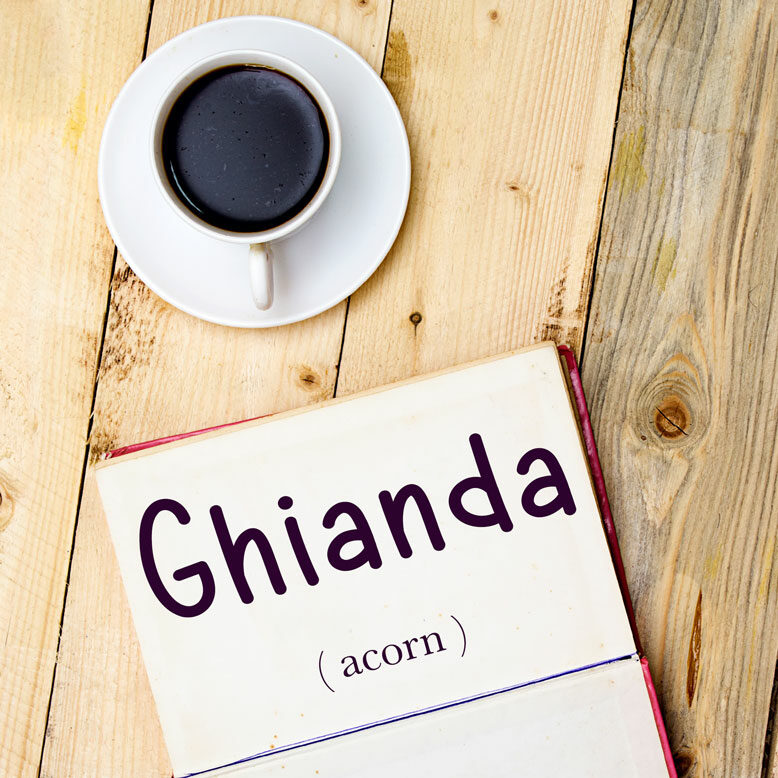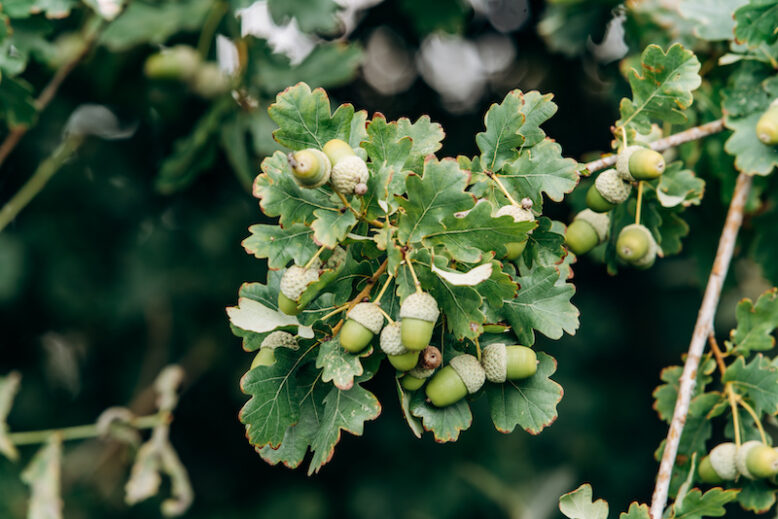The word for acorn in Italian is ghianda (feminine, plural: ghiande). The fruit of the oak tree (quercia), it has the appearance of a smooth oval nut with a rough cup-like hat called a cupule (cupola).

Acorns make up the diet of a surprising range of animals including birds like ducks (papere) and pigeons (piccioni), small mammals such as mice (topi) and squirrels (scoiattoli), and larger mammals like pigs (maiali), bears (orsi) and deer (cervi). In fact, it is thought that up to 25% of the deer’s diet consists of acorns in the autumn (autunno)!
Tutti sanno che gli scoiattoli adorano le ghiande.
Everyone knows that squirrels love acorns.
One bird in particular that loves acorns is the jay, which is why it is called a ghiandaia in Italian!

Humans have historically eaten acorns, predominantly in times of famine, but today they are rarely consumed despite being rich in protein (proteine), fibre (fibra), vitamins (vitamine), and minerals (minerali). The only exceptions are Spain and Korea, where it is still popular. Interestingly, Roman historian Gaius Plinius Secundus notes in his writings that acorn flour (farina di ghiande) could be used to make bread (pane).
Heather Broster is a graduate with honours in linguistics from the University of Western Ontario. She is an aspiring polyglot, proficient in English and Italian, as well as Japanese, Welsh, and French to varying degrees of fluency. Originally from Toronto, Heather has resided in various countries, notably Italy for a period of six years. Her primary focus lies in the fields of language acquisition, education, and bilingual instruction.


